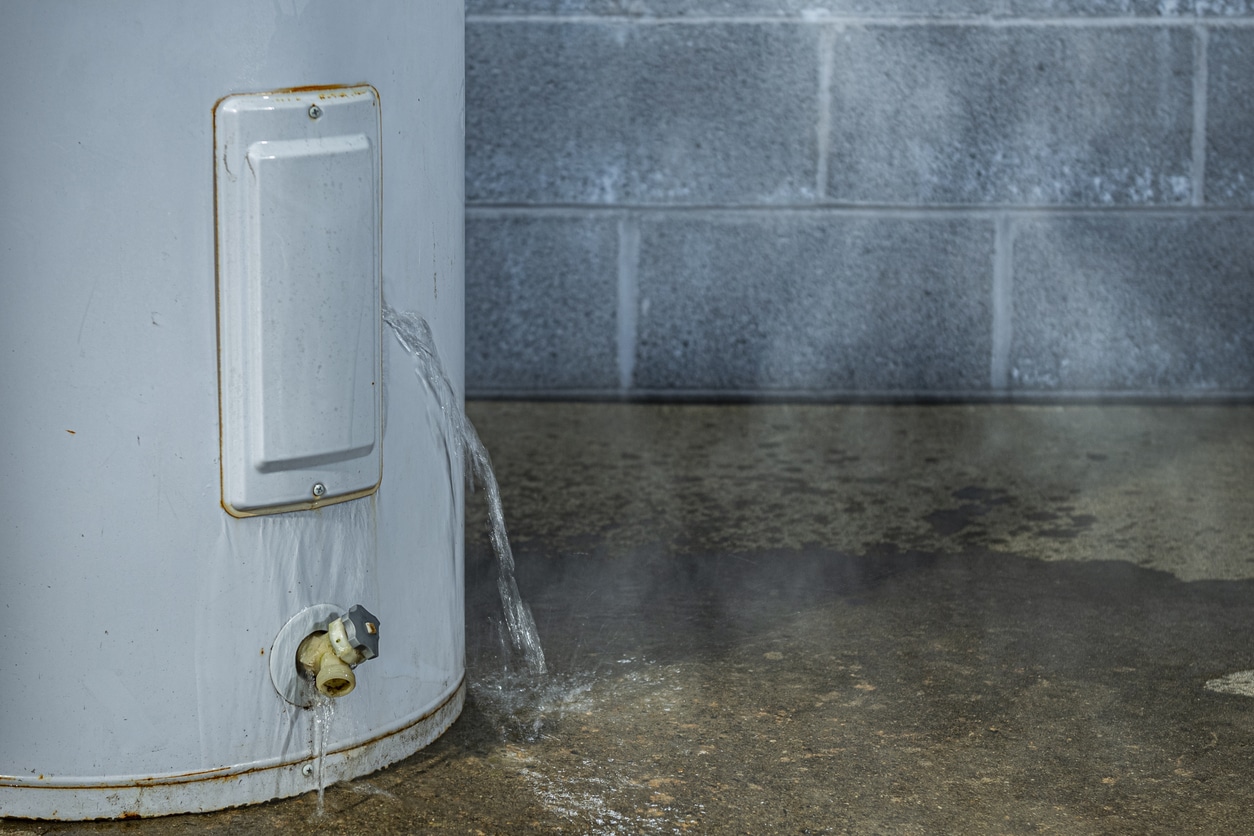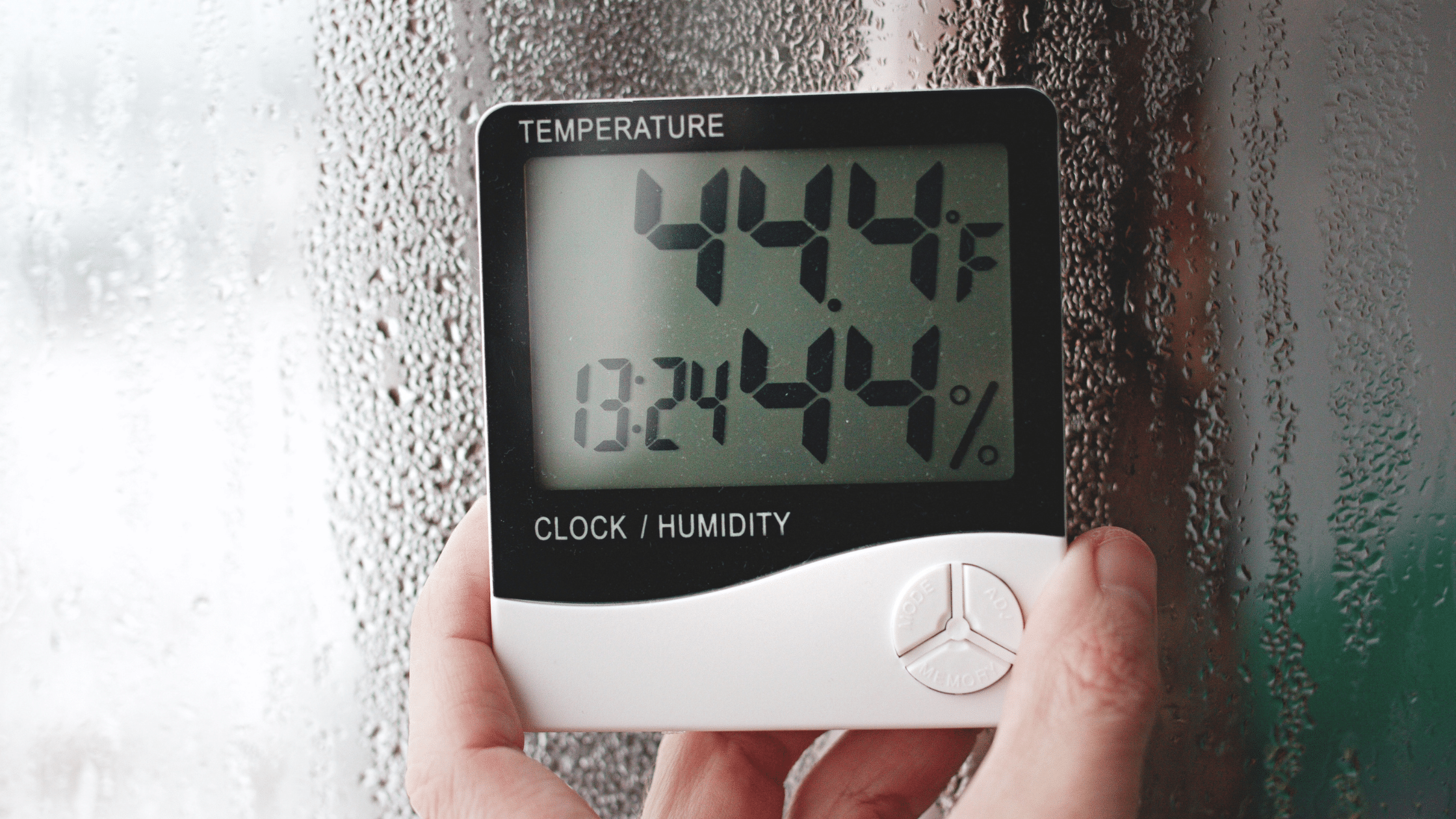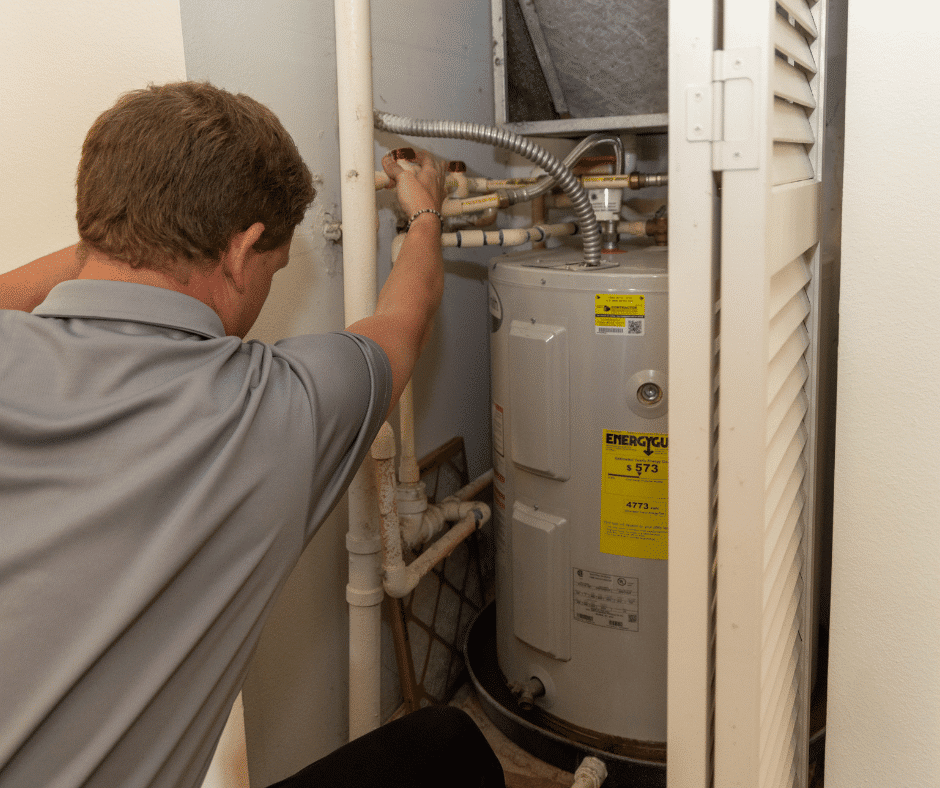You know HVAC system maintenance is important. It's the secret to keeping your home comfortable…

5 Signs Your Hot Water Heater Needs To Be Replaced
Sometimes homeowners suspect they should replace their hot water heater specifically due to its age. Like most things, hot water heaters do have a life expectancy and depending on the kind that you have, it could be anywhere from 8-20 years. Traditional hot water heaters generally last around ten years while tankless hot water heaters can last to about twenty. No matter the kind you have in your home, eventually your hot water heater will fail and need replacing. Here are 5 signs your hot water heater needs to be replaced.
Lack of Hot Water
Probably the most noticeable of the signs, the lack of hot water is definitely a strong indicator that you may need to replace your hot water heater. With hot water being a necessity in your home, having a faulty hot water heater is going to severely impact your quality of life. Without hot water, you are unable to bathe or wash dishes or laundry. There are a few reasons your hot water heater may have stopped producing hot water. They include: a misadjusted thermostat, a broken heating element, or a tank that is too small for your home.
Misadjusted thermostat: Your hot water heater has a thermostat installed on it that keeps your heating element operating at a certain temperature. Most hot water heaters are set between 120 and 140 degrees Fahrenheit. If your thermostat is set too low, you will notice the water coming out of your fixtures is not hot enough. You may have to adjust your thermostat to a higher temperature that is better suited for you. Once you have made the adjustment, it will take anywhere from 30 minutes to an hour to determine if that fixed your problem. If it does not, it could also mean that your thermostat is faulty. Luckily, thermostats can be replaced and your plumbing professional should be able to replace it.
Broken Heating Element: Your hot water heater also has a heating element that is used to heat the water in your home. If you notice that the water coming out of your fixtures has no warmth to it at all, your heating element could be broken. Like the thermostat, these parts can be replaced.
Inadequate Tank Size: If your hot water heater tank is not large enough to sustain the demand you and your family require, you will likely experience inconsistent hot water. If this is the case, your hot water heater will likely need to be replaced to keep up with your demand. In any of these cases, you will want your plumbing professional to come out and inspect your hot water heater.
Noisy Hot Water Heater
As your hot water heater ages, sediment will build up in the bottom of your tank. When your water is heated, the sediment build up will harden. As a result, you will hear rumbling or banging noises from your hot water heater. This indicates that your hot water heater may be entering its last stages of life. You may be able to have your hot water heater flushed to fix this issue, however, in some cases the sediment build up is too much and replacement is needed.
Brown, Red or Discolored Water From Your Fixtures
One common issue older water heaters have is brown, red or discolored water coming from your fixtures. When corrosion happens, rust builds up and can leak into the water supply in your home. This leads to the discolored water coming out of your faucets. In any situation where water and metal are put together, eventually corrosion will happen, especially after the sacrificial anode rod is exhausted. After that point, the water will likely pick up the corrosion, leading to rust.
Sometimes your water may be cloudy or sandy, caused by the buildup of sediment in your hot water heater tank. We have already covered how you can have your hot water heater flushed to fix that issue. However, if the cloudy colored water comes back, that is an indicator that it is time for replacement.
Visible Signs of Leaking
If you visually inspect your hot water heater and notice puddles of water or drips coming from any of the connecting pieces, you may need to replace your hot water heater. If you see water leaks around your hot water heater, there might be a leak in the tank that needs to be repaired. Sometimes, small fractures develop over time as the metal tank expands and contracts with heat, over and over again. When it fractures, you are at serious risk of a tank burst which is dangerous. Loose connections to the water tank could be another possibility of why water is leaking around your tank. Sometimes these connections can be tightened by a homeowner, but other times a professional may need to replace them. A leaking pressure or overflow pipe could also indicate an issue with the unit or that the relief valve is malfunctioning. It is best to call a professional to inspect these parts and make sure the unit is working as it should. In any case, when you notice water around your hot water heater, you will want to contact your local plumbing professional to come out and inspect it.
Visible Rust or Corrosion On Your Tank
Visually inspecting your hot water heater is one of the first ways you can identify an issue or problem with your hot water heater. If you spot rust around the water inlet or pressure relief valve on your hot water heater, it is likely that rust has also taken hold inside the tank as well. If that is the case, the only option is to replace the tank as soon as possible. Once your tank has begun to rust, there is no way to save it and replacement is needed, otherwise your tank could burst. By making visual inspections of your hot water heater a part of your routine home maintenance, you are more likely to catch a small issue before it becomes a big one.
All hot water heaters come with a serial number for easy look-up. If you suspect your hot water heater is getting up there in age, you can look up the serial number and find that information easily. A hot water heater failure is a major inconvenience for any home and hopefully these signs will help you identify your problem quickly and determine whether or not it is time to replace your hot water heater. It is important to keep up with your regular hot water heater maintenance. By having your hot water heater routinely flushed, you are protecting it from sediment build up which can lead to rust, corrosion, discolored water, and other issues.


